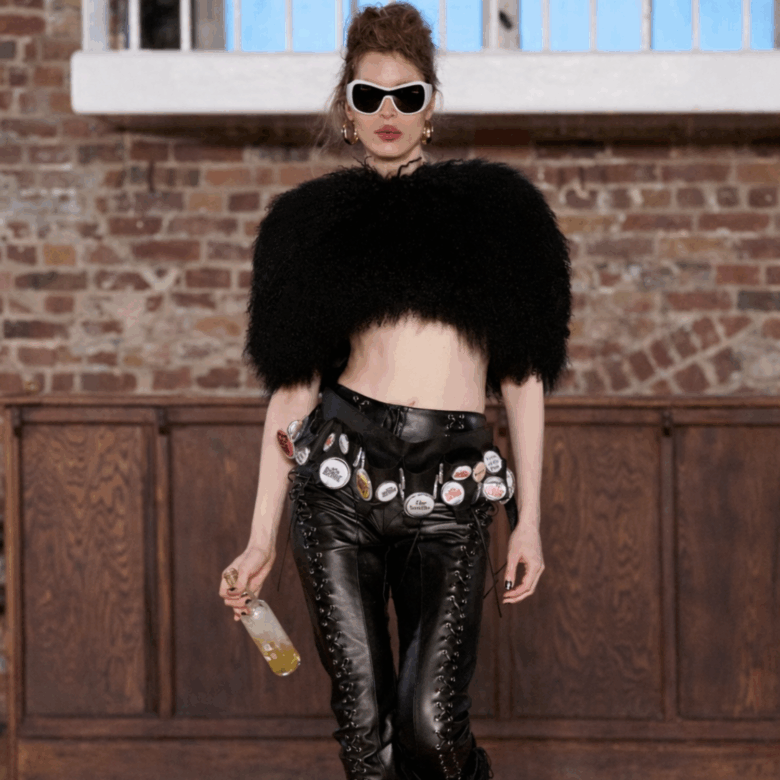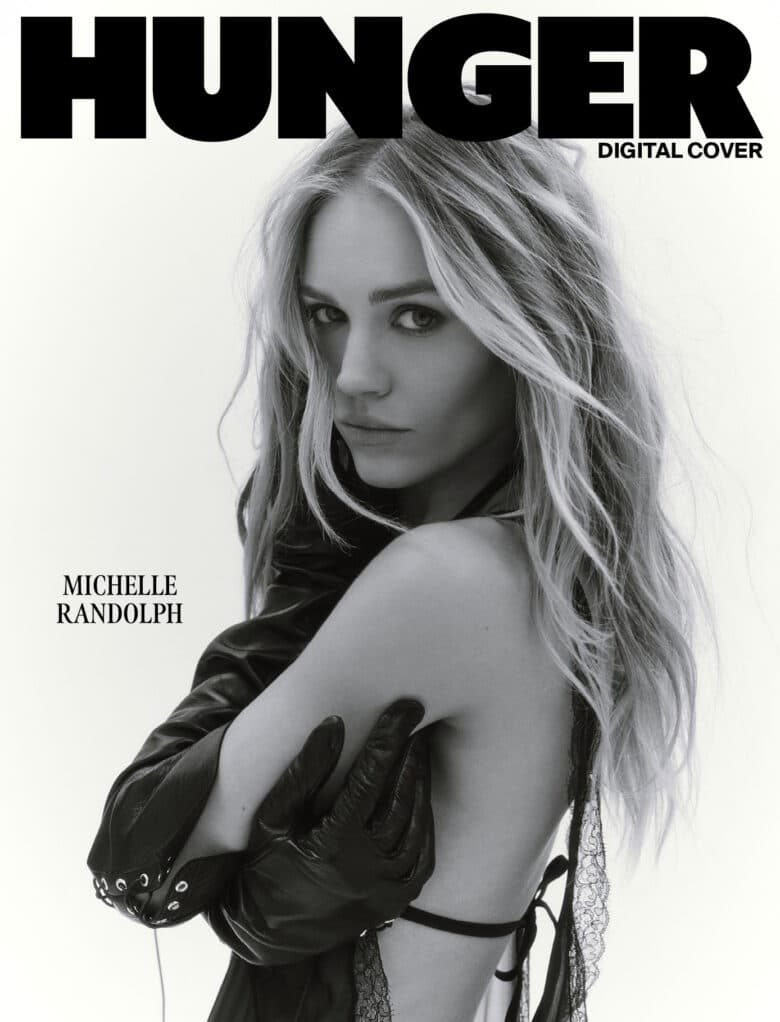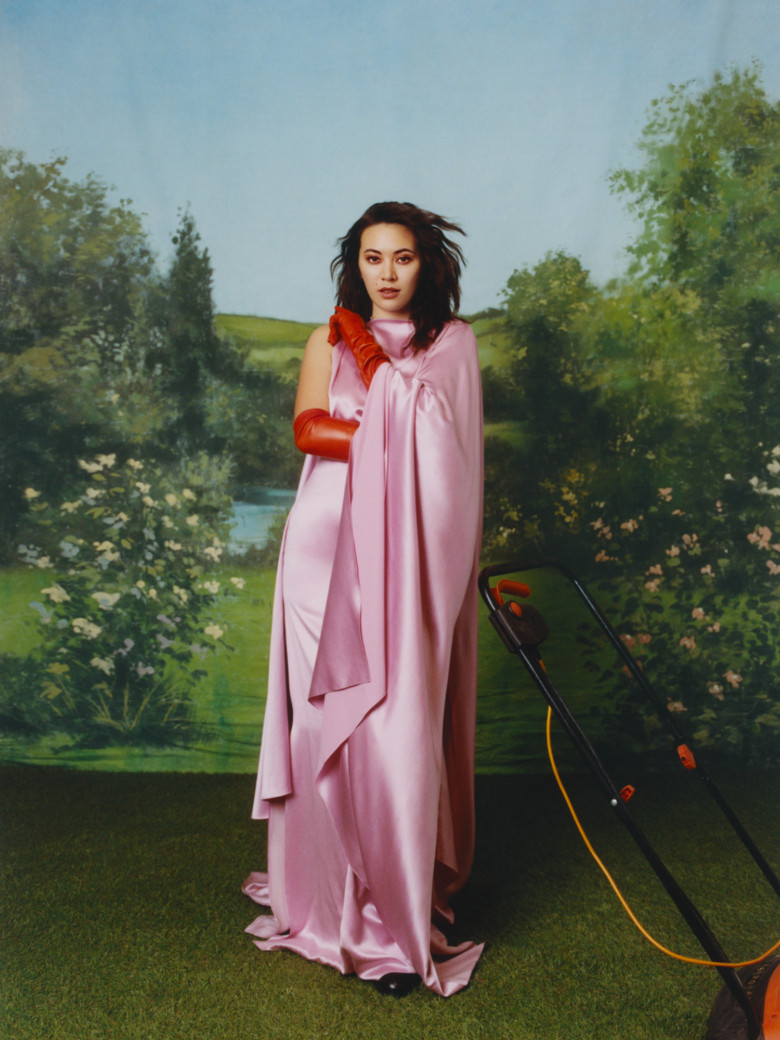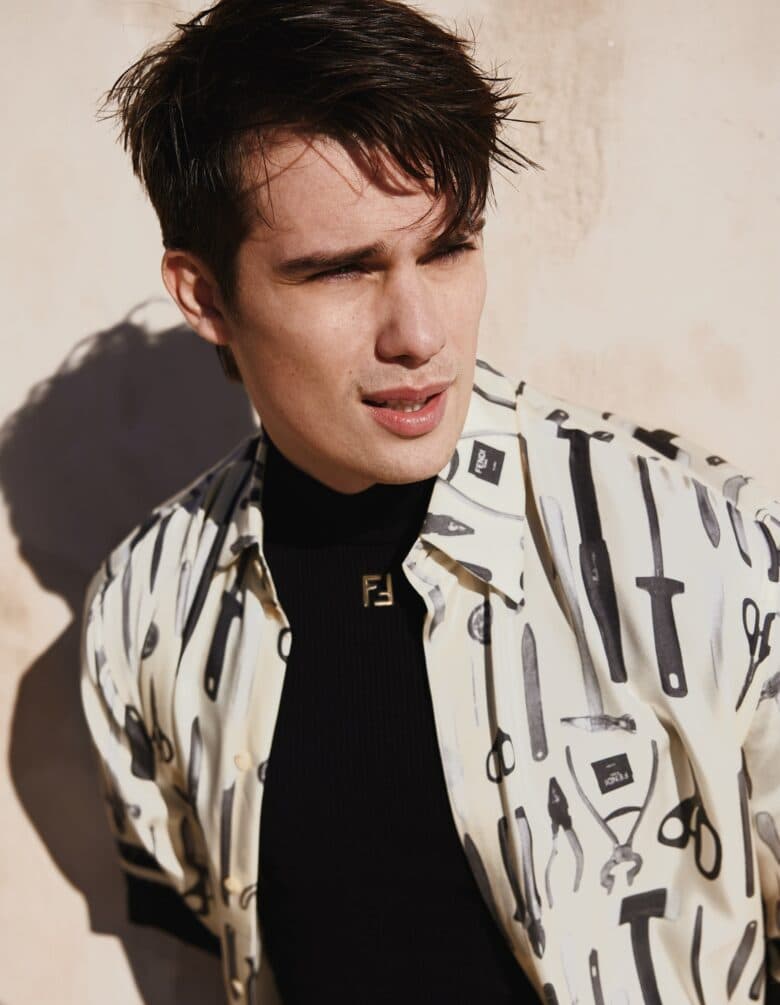Calvin Demba on ‘Supacell’, superpowers… and ‘Kerching!’

“Word will get around that you’re this Messiah person who’s got these powers and before you know it you’re doing more favours than anything […] I’d only be the healer if I got to wear a balaclava.” Though Calvin Demba is decidedly modest about it, he’s funny, something I get a taste of when I ask him what superpower he’d go for. That comes up in conversation because Demba is about to grace our screens in Netflix’s Supacell, a kind of new-gen Misfits that follows a slew of South Londoners who suddenly develop superhuman abilities. Demba plays Rodney in the series, a “wheeler dealer”, as Demba puts it, who’s “got that charm of someone who’s grinded on the streets”. Rodney isn’t Supacell’s comic relief, per se (“he’s a layered character […] he has got pain there”) but it could definitely be said that Rodney plays to Demba’s strengths. Though you might recognise Demba from films like Kingsman: The Golden Circle and TV shows like Youngers, it’s his work behind the camera in shorts like Rue Boy (which he also stars in) and BabyDolls where the East Londoner really shines.
In both Rue Boy and BabyDolls, dialogue comes in the form of pithy spoken verse (penned by Demba) that muses on everything from male bravado to internalised homophobia. I resisted the urge to tell Demba that you could take the dialogue from his shorts, pop it on a Mike Skinner-esque beat and make 2024’s answer to ‘The Irony of It All’, but it would be true (in the best way possible). It’s Demba’s penchant for this kind of writing that attracted him to Supacell, too. Written and directed by rapper Rapman, Supacell is hot on the heels of not only Rapman’s feature Blue Story, but a short that Demba sings the praises of called Shiro’s Story, which is narrated through the medium of rap. “I think he’s a true artist,” says Demba when we talk about the Supacell director.
Ahead of the release of Supacell on Netflix tomorrow, HUNGER sits down with the actor, writer and director to chat about the importance of representation behind the scenes, shooting on location in Deptford… and that CBBC programme Kerching!.

Amber Rawlings: Hey Calvin. How’s life treating you at the moment?
Calvin Demba: Yeah, I can’t complain. The only thing I’ve been complaining about is my hayfever. That’s really kicking off. Beyond that, great — glorious. We’ve been doing a lot of press for Supacell and yesterday I saw a friend’s short film that won at South by Southwest. Hopefully we’re collaborating on a project together – one that I hope to direct – in the near future. Things look promising. Just trying to stay in a positive mind frame, you know.
AR: Supacell comes out next week. Even at this stage in your career, do you feel nervous before something’s released? Things that go out on Netflix tend to absolutely blow up.
CD: I wouldn’t say I suffer with anxiety or anything like that, but I do have thoughts that every actor or artist has. Like, am I good enough? You know, imposter syndrome things. But ultimately I feel like we’ve made something that a lot of people will resonate with. What we’ve made is quite organic and authentic. It’s come from a real place — Rapman really did live in South London and the characters all feed into the South London scene. I think on that side of things, we’re going to be safe. But obviously taste is subjective, so there’s going to be some people that won’t resonate with what we’ve done. For me, I just love acting and performing and the hype that could be created from being on a platform like Netflix is fun, but it’s not the reason I do it, you know? I’m just grateful that I had the opportunity to be in the show. Whatever comes of it, comes of it. We’ll see what happens.

AR: I watched a few of your shorts [BabyDolls; Rue Boy] and I think it could be said you’ve got a thing for comedy. Is that part of what drew you to the role of Rodney in Supacell? In those first couple of episodes, he brings a lot of humour.
CD: I spoke with Raps and he said there’s moments where Rodney has the opportunity to be the comic relief. You know, immediately there’s tension for Tosin [Cole’s] character, but Rodney is just a kind of wheeler-dealer. He’s got that charm of someone who’s grinded on the streets. But I think he’s a layered character. Underneath it, he has got pain there and that’s alluded to. It’s complex in that regard. He’s definitely a lot of fun to play. Comedy is something that I think is true to life. Life is hilarious. It’s absurd. It’s very kind of you to say that you found Rodney funny. I definitely didn’t play it for laughs, but if he’s funny, he’s funny. I’ll take it where I can get it.
AR: What drew you to Supacell in a broader sense? I wondered if there was anything in that there’s such an oversaturation of white-led superhero stuff, and Supacell is obviously really refreshing in that sense.
CD: Potentially. One thing I did love about being in Supacell is that the diversity that you see on screen wasn’t just happening on screen. It was happening beyond that — the DoP, the head of makeup and the head of costume were all POC. You know, there’s always a push for being more inclusive in front of the screen, but when it’s not reflected behind, sometimes it feels like a bit of a facade. Ultimately I wanted to work with Rapman, who’s obviously our writer, director and showrunner. He did this thing called Shiro’s Story, which is spoken almost as a rap verse, and that’s something I’ve kind of done with my films, too. But, yeah, I’ve been a fan since before Blue Story. I think he’s a true artist.
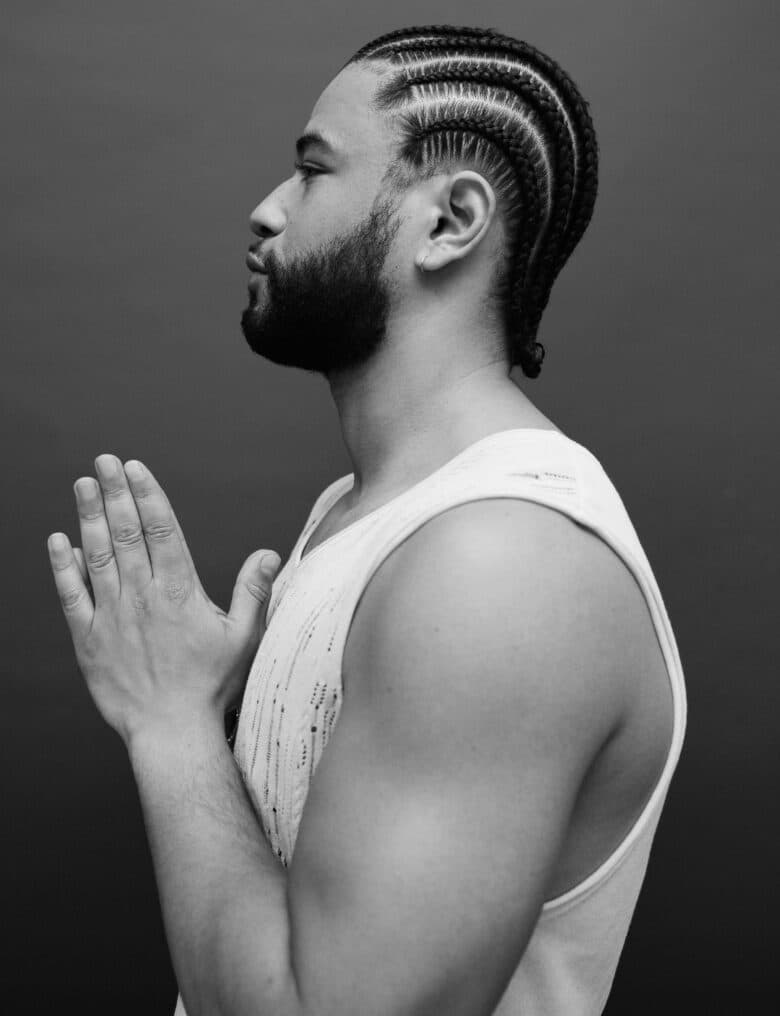
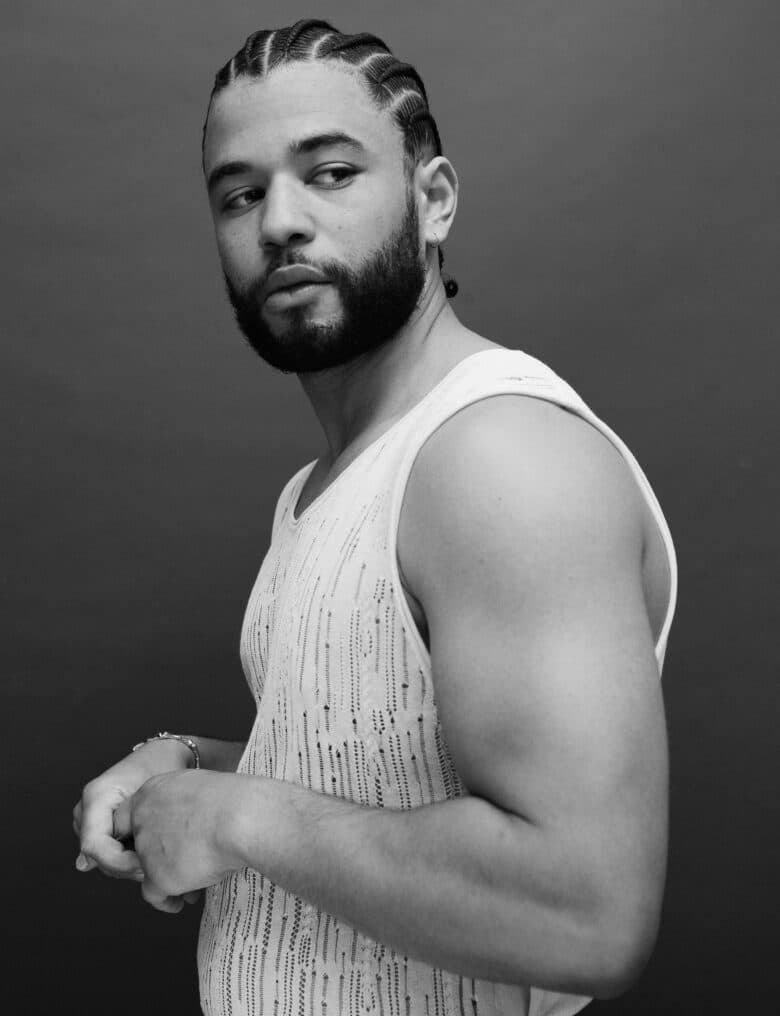
AR: At the moment there’s somewhat of a thing for musicians stepping behind the camera. Jeymes Samuel’s The Book of Clarence, for example, and obviously Supacell. What do you think Rapman brings to the production that’s different to directors without that background?
CD: Obviously, he’s a musician and he’s got many strings to his bow, but I just looked at him as the person who’s directing the show that I’m starring in. I guess what’s nice about Rapman is because he’s written it and directed it – and because he’s from that world – I can just ask any questions that I might have pertaining to the character. That was helpful. He knows what he wants because he’s written it and he’s got a vision. He’s also very collaborative. When you’ve got a director who’s more like ‘Let’s just see what happens,’ you can get a little bit lost. You know, as you walk away as an actor, that’s your job done. You don’t know how it’s going to be edited. You don’t know what the sound design is going to be like. You haven’t got any idea of the post production process. You sort of just leave. But Raps has all of that worked out already so you can feel what the tone might be like when it’s cut together.
AR: With you being a born and raised Londoner, I imagine it’s really nice to be in something that’s so explicitly drawing off British and London-specific cultural references, too?
CD: Yeah, it was nice. [Rapman’s] from Bermondsey, and I happened to go to school in Bermondsey even though I’m from East London. I mean, Supacell is authentic. We were shooting in Deptford, on location. Not on a green screen, not in the studio. That, for me, was a buzz. I remember being 11 or something like that and seeing them shoot a little segment of The Bill in Shadwell Park. I was like, wow, imagine being the guy who’s in front of that camera. It’s a bit of a full circle moment. Maybe there was a little kid watching us perform on the streets of Deptford.

AR: Supacell reminds me of Misfits in some ways. That was really formative for me and I think it was quite a landmark TV show in terms of using the UK setting in a really fun way — was there something equivalent for you growing up?
CD: Skins. Skins was formative. What else? What, as a kid, did I buzz off? When I was like nine or ten I loved this series called Kerching!. That was a buzz. Obviously the guy, Devon Anderson – who plays Taj – made me think that I could be the Kerching! guy. It goes back to why it’s important to have people on screen that, you know, look like you.
AR: Rodney brings that dose of realism to Supacell. He taps into the idea that not everyone is going to get a superpower and try to save the world. Do you think you’d be the same as Rodney?
CD: I mean, if you’ve got an ability, you want to enjoy it, don’t you? I guess the novelty will wear off at a certain point. I did ask myself, if I had a superpower, what would I have? I had to think about it quite deeply. And I was like, well, there’s an element of you wanting to help people because you’re in a privileged position to do so, but then word will get around that you’re this Messiah person who’s got these powers and before you know it you’re doing more favours than anything. That might be a bit of a burden. So then I was like, I’d have the ability to help people, but keep my anonymity. Like, I’d only be the healer if I got to wear a balaclava.

AR: You’ve done a fair bit of theatre work. Do you think that prepares you in a special way for those scenes where the cast of Supacell all come together?
CD: It’s cliche, but acting is reacting, isn’t it? You feed off of the energy of your fellow actors. You’re being aware of what people are doing and how you would feel about it within the moment. I guess it’s a similar concept on stage because you’re just there being scrutinised by the audience even when you’re not speaking. With camera work, some actors might feel like they can switch off a little bit if they’re not in the shot. But stage is so on. It conditions you to not switch off and be, you know, a lazy actor. Just because the camera isn’t on you it doesn’t mean that you can stop reacting to the other person in the scene. You’ve still got to be generous.
AR: We touched on this earlier, but is there something you hope audiences take away from Supacell? I think TVs and films that are led by POC do often get shoehorned into being political, or having some kind of social message. Do you want that? Or is it more the case that this is just a great bit of TV, that just so happens to be led by POC?
CD: Not to sound like a politician, but it’s a bit of the former and the latter. I think it is a show that people can just be entertained by and, you know, it just happens to have a diverse cast. It’s a bit of that. Equally, there is some social commentary weaved in there. What I will say is when Supacell is that little bit on the political side – speaking about what society means to someone of our skin complexion – it’s not earnest to the point that the message is being smashed over you. It’s subtle.

AR: Finally, are you looking to get back behind the camera soon? What genres might we see you take on?
CD: I’m really fascinated by the craft I’m in and that involves all facets. Being behind the camera, being in front of the camera. I want to be involved in all the mediums of storytelling. I’m hoping to craft more shorts. I’ve written about three or four short films and I’m trying to fund them by any means necessary. And I like dark stuff. Dark comedy, like Yorgos [Lanthimos’] work. I love everything Ruben Östlund [Triangle of Sadness; Force Majeure] makes, too. I’m keen to do stuff that is a little bit off kilter. You may have been able to see that from BabyDolls and Rue Boy. I like films that have a bit of a message and a bit of humour, because the world’s dark enough to be honest. You watch something to be entertained and if you can say something that’s coherent and, and, at least to your perspective, important, that’s a good bonus in my opinion. I always write to my humour — whether it’s funny to anyone else, who knows. But that’s it, man.
Supacell airs on Netflix on the 27th of June.
- PhotographerJordan Rossi
- WriterAmber Rawlings
- Photo TeamMarcus Lister and Harrison Phillips
- StylistAdele Cany
- GroomerPaul Donovan

